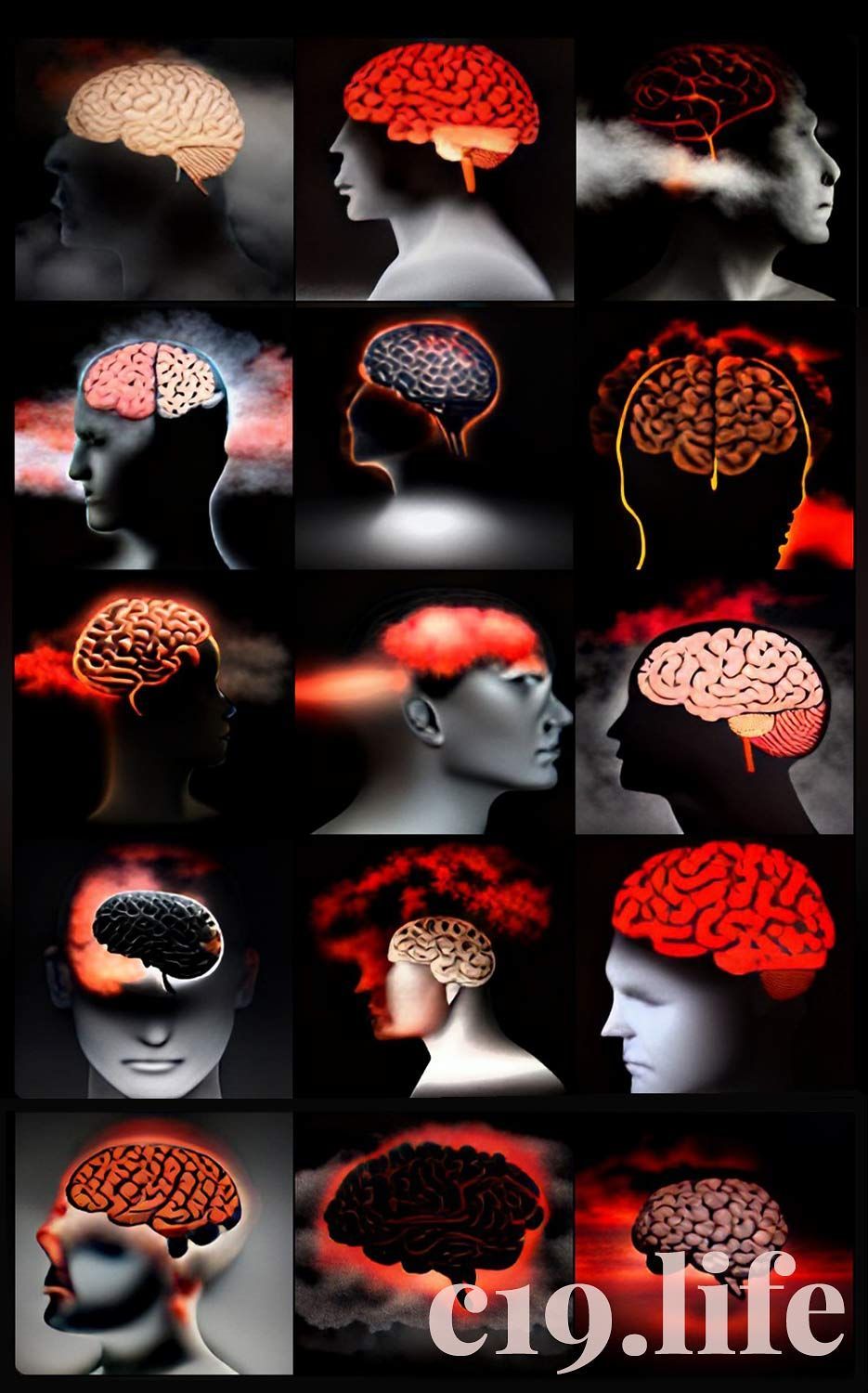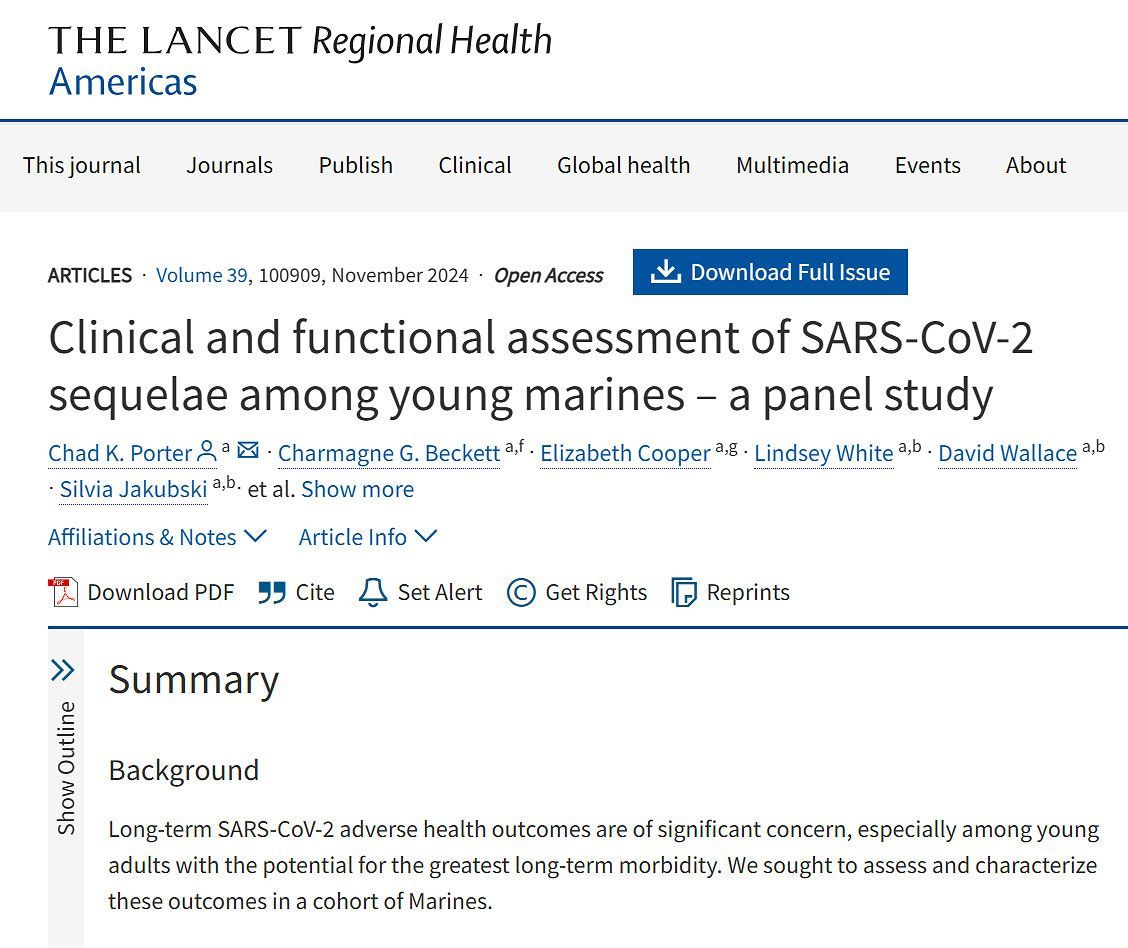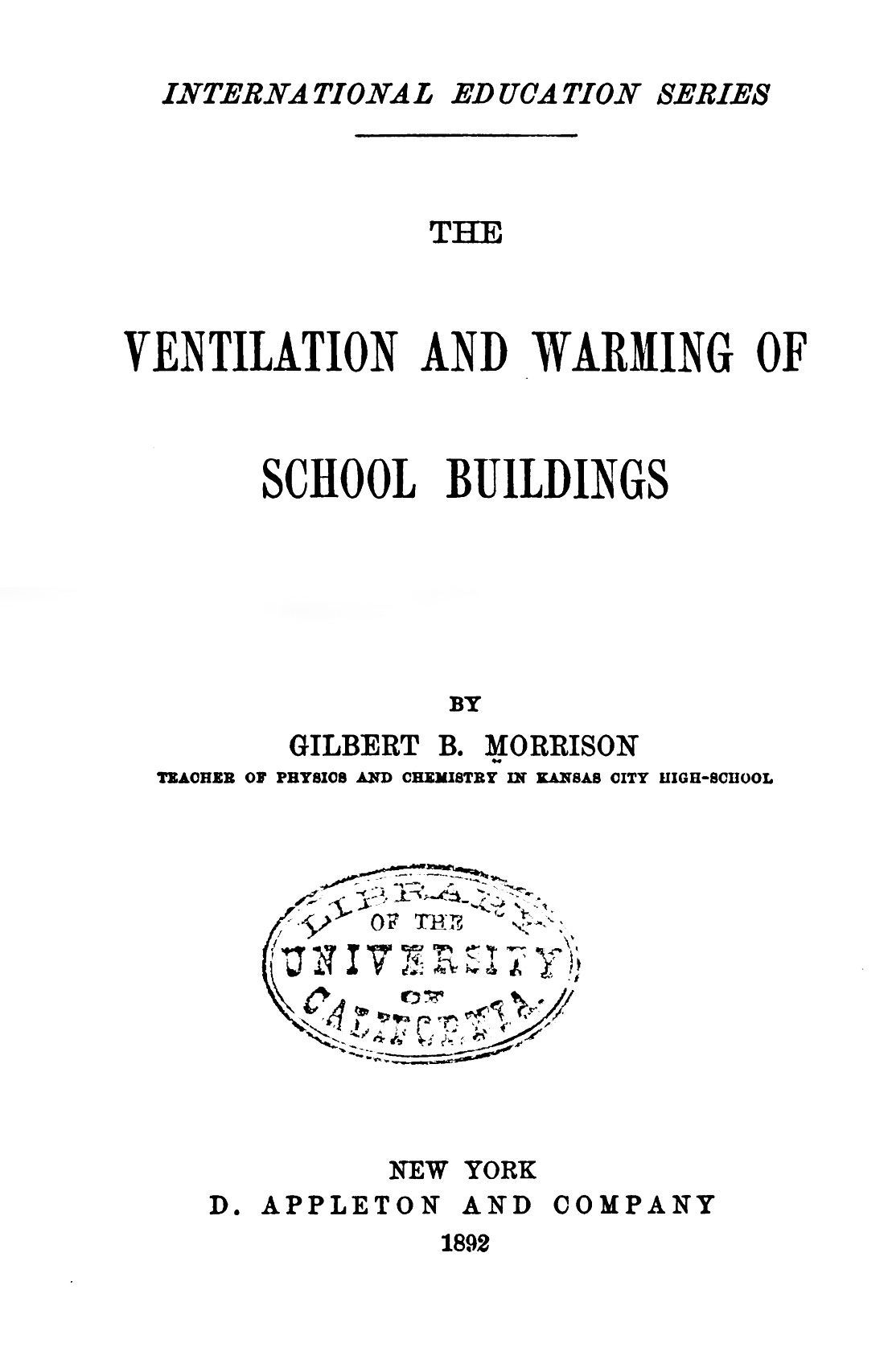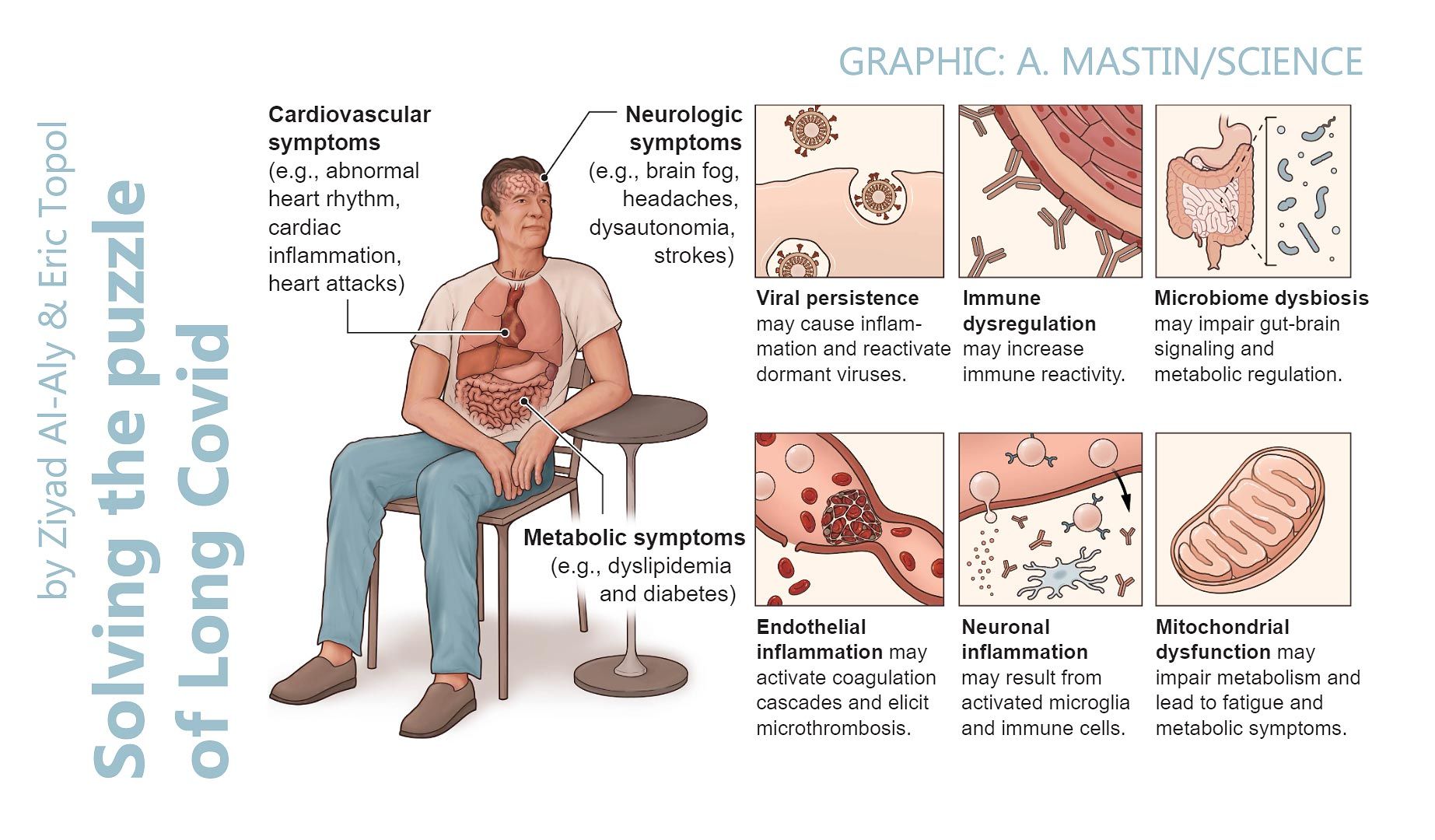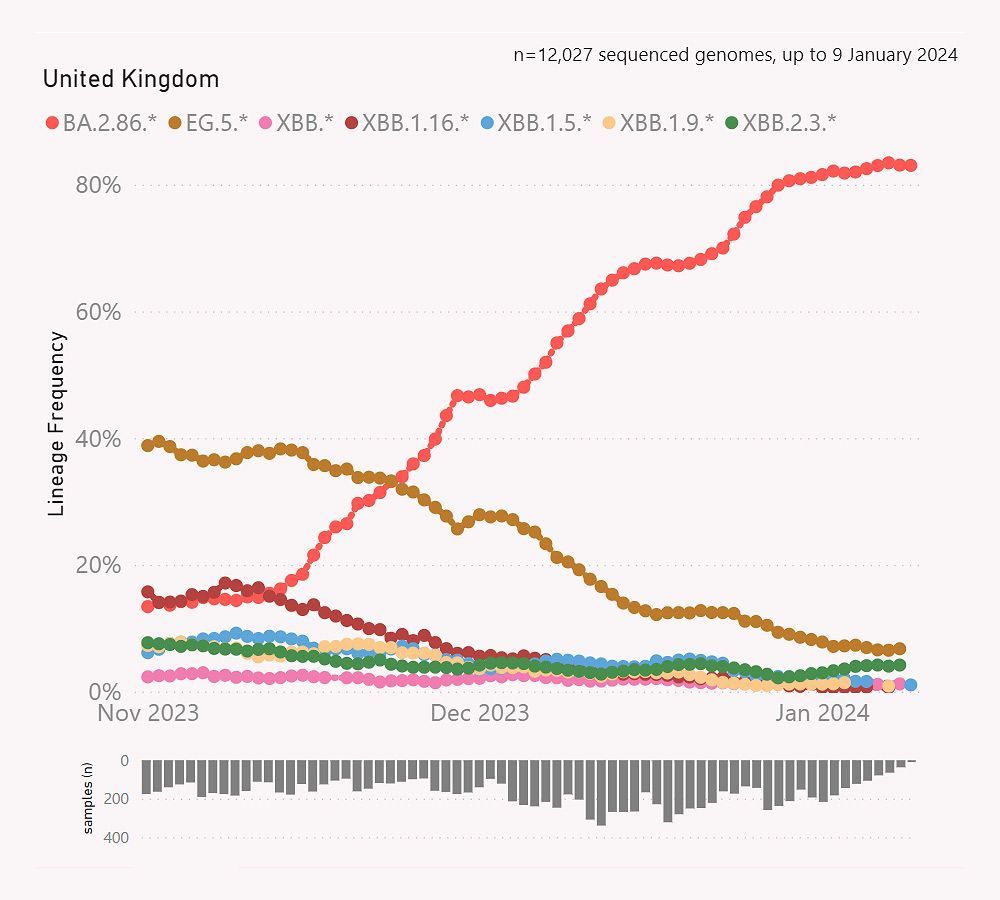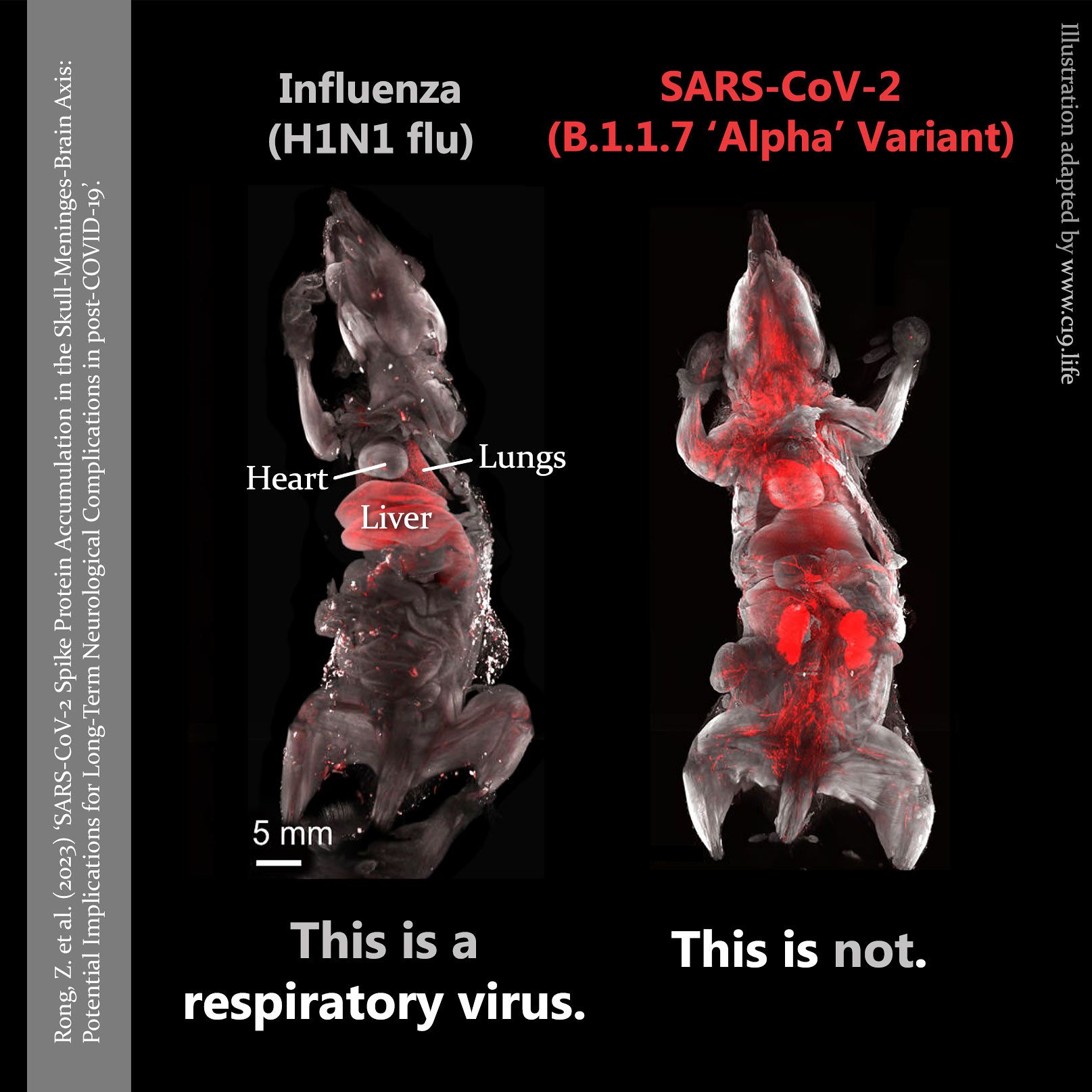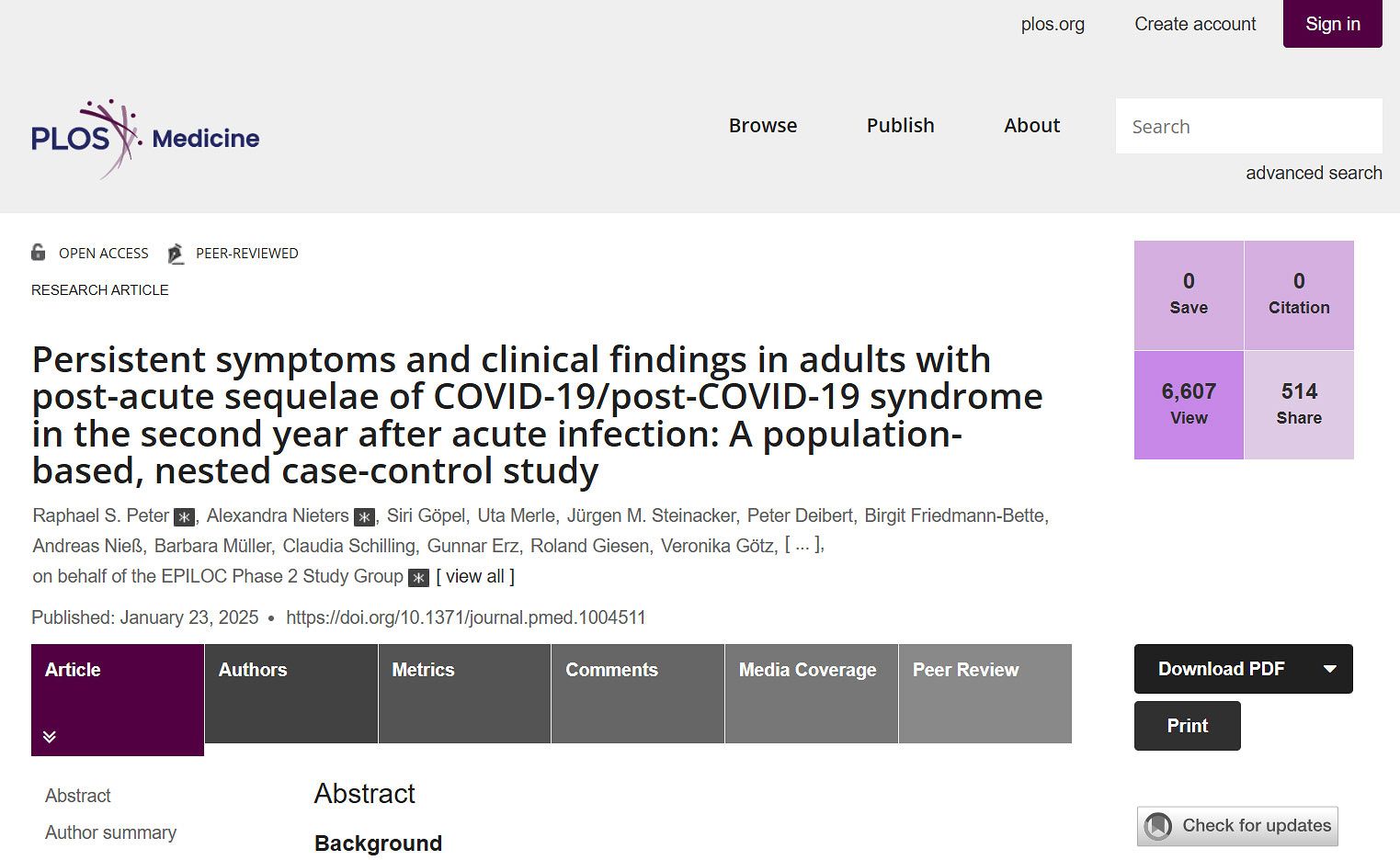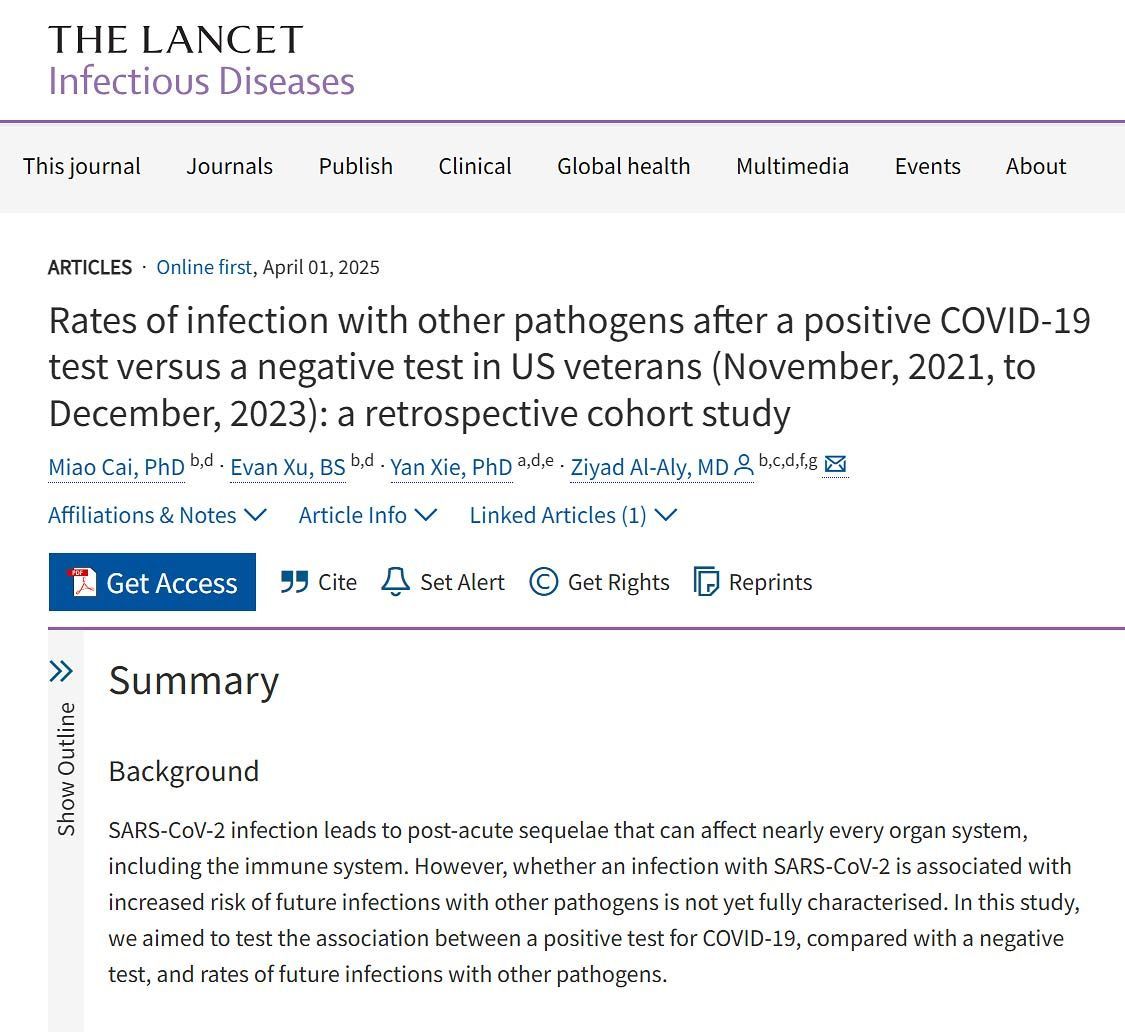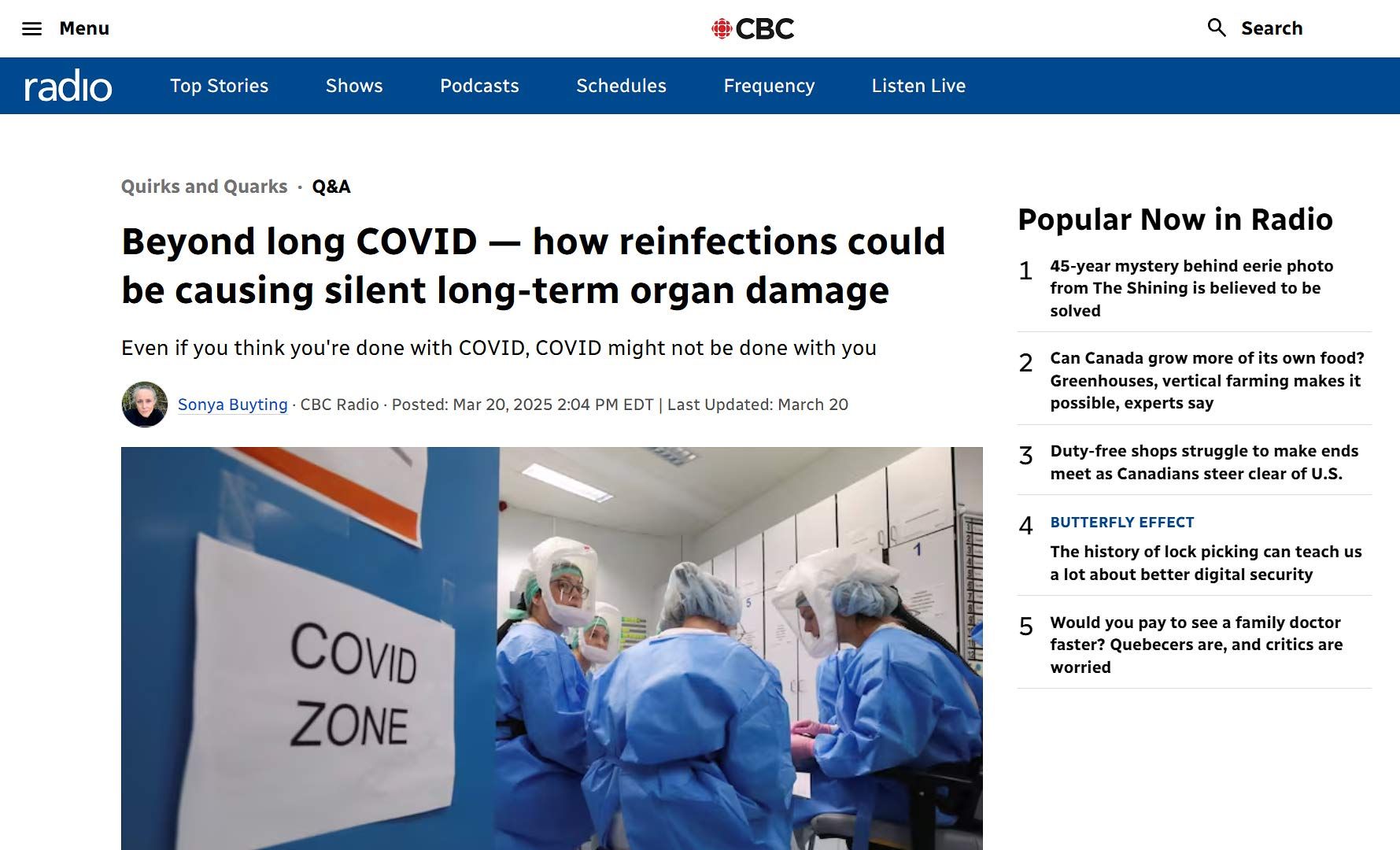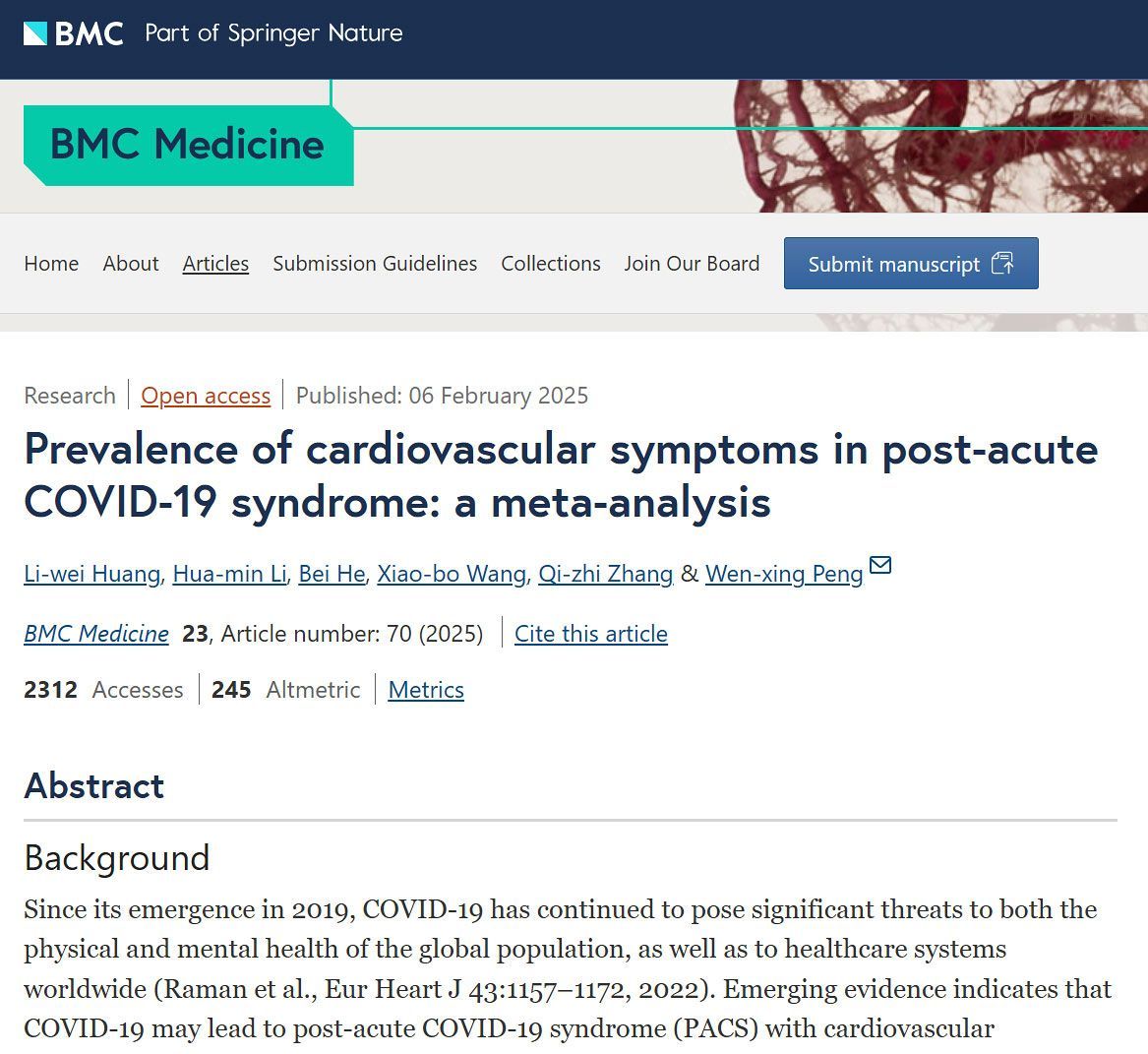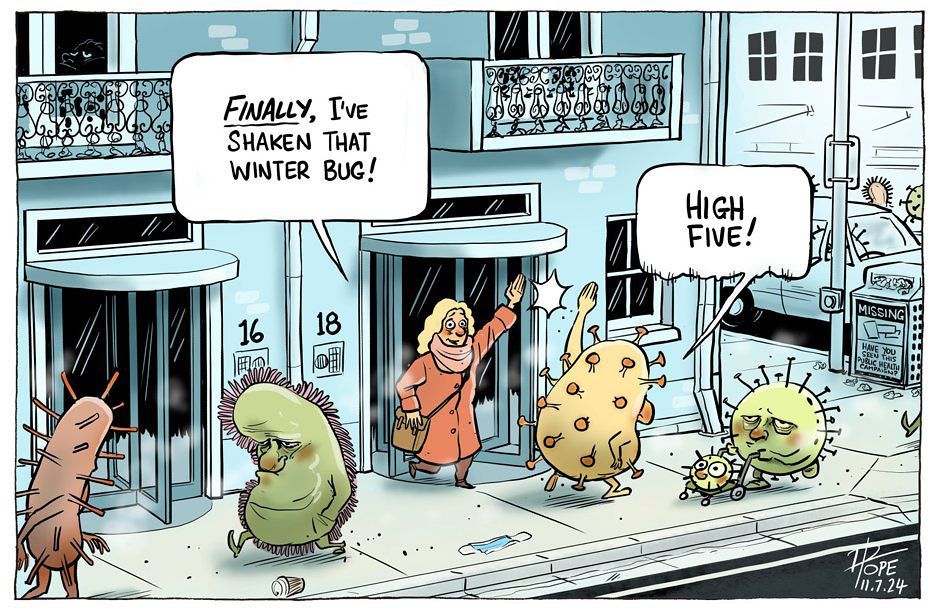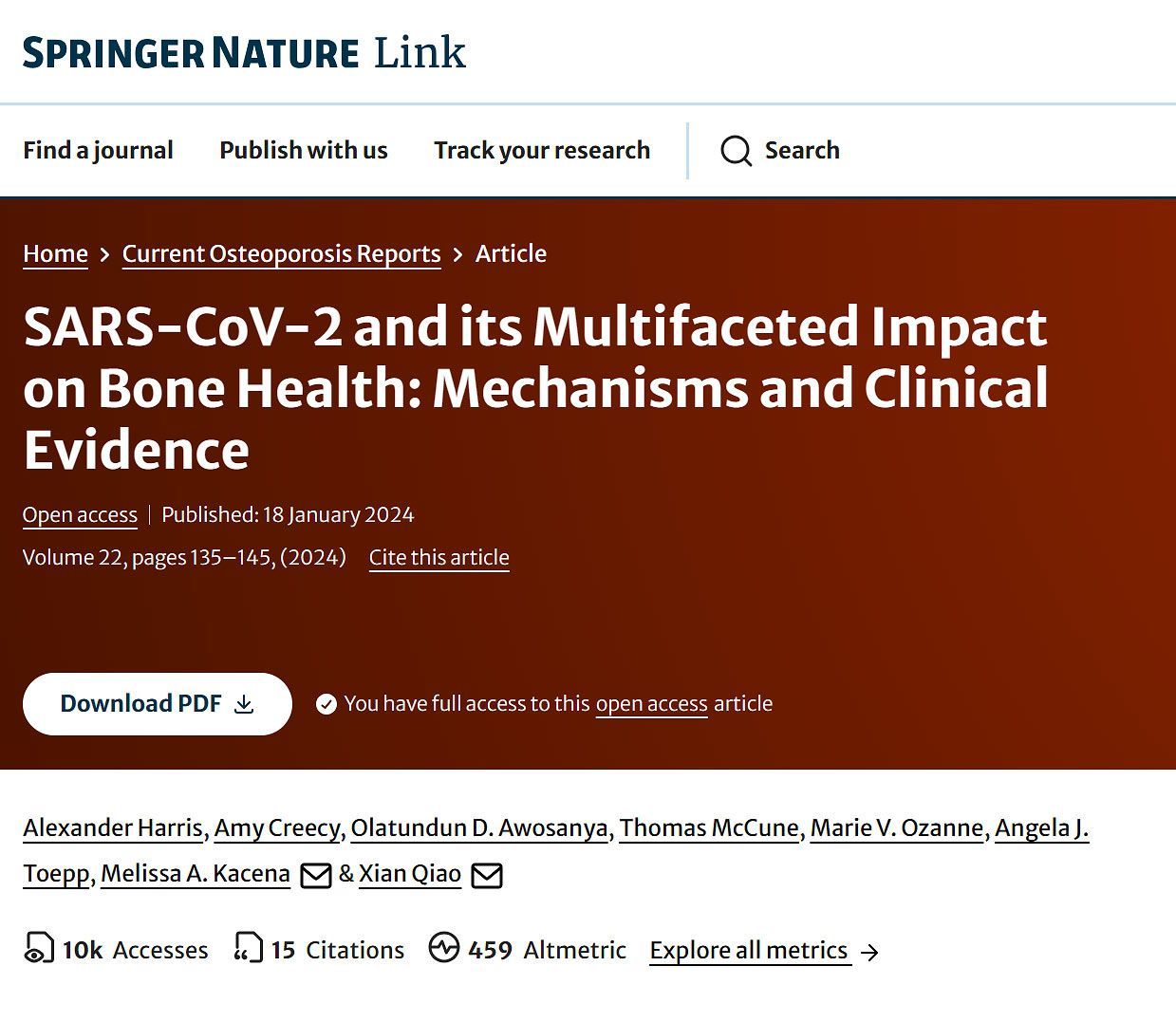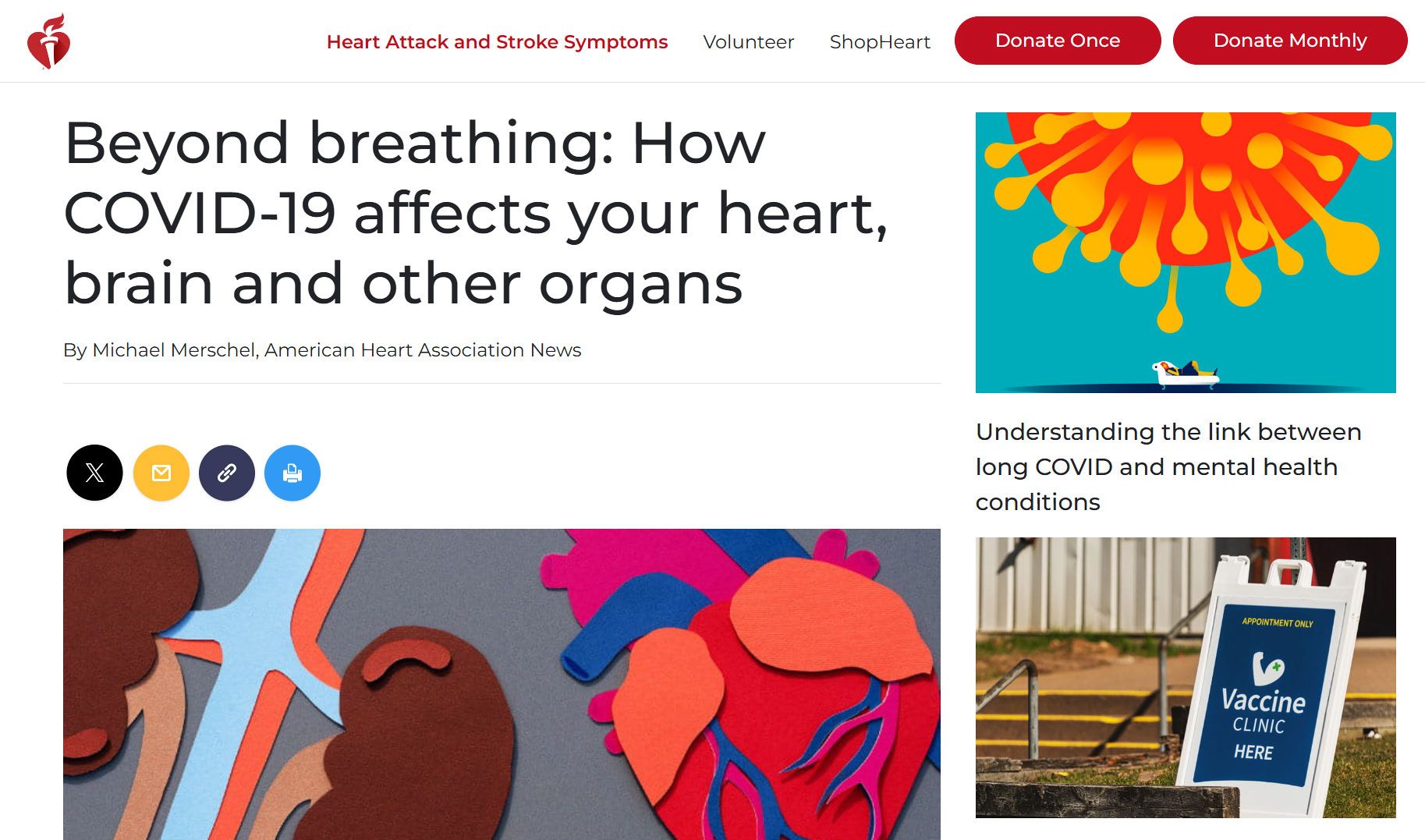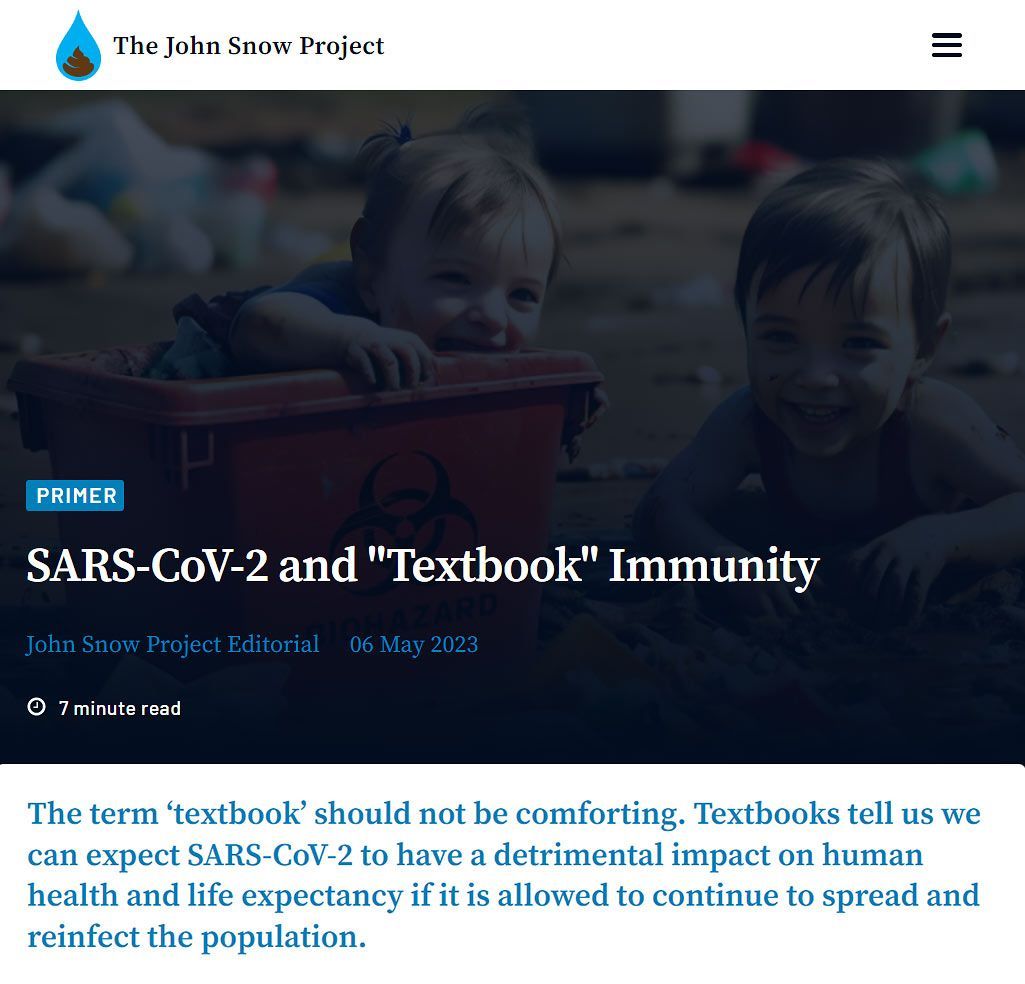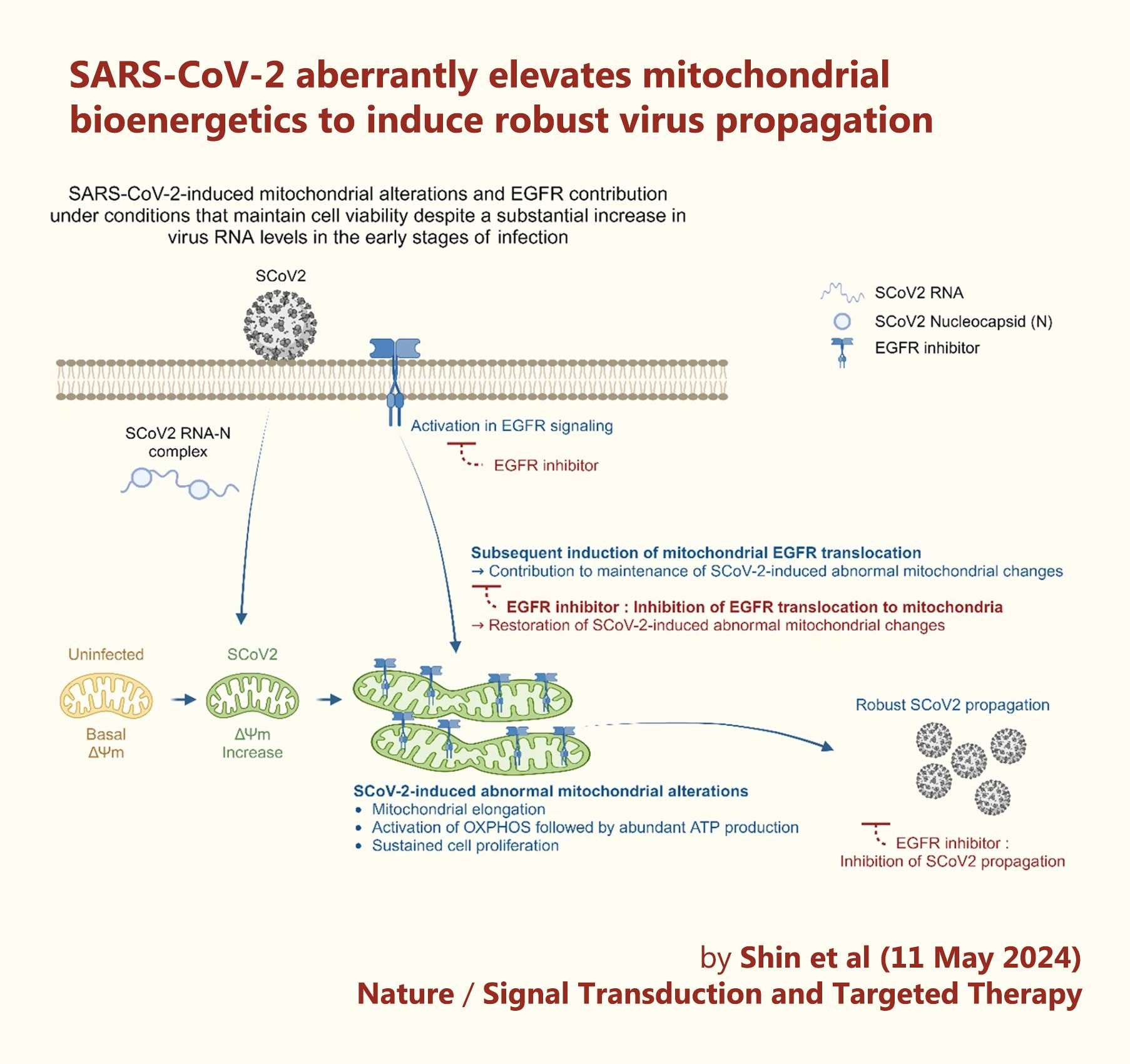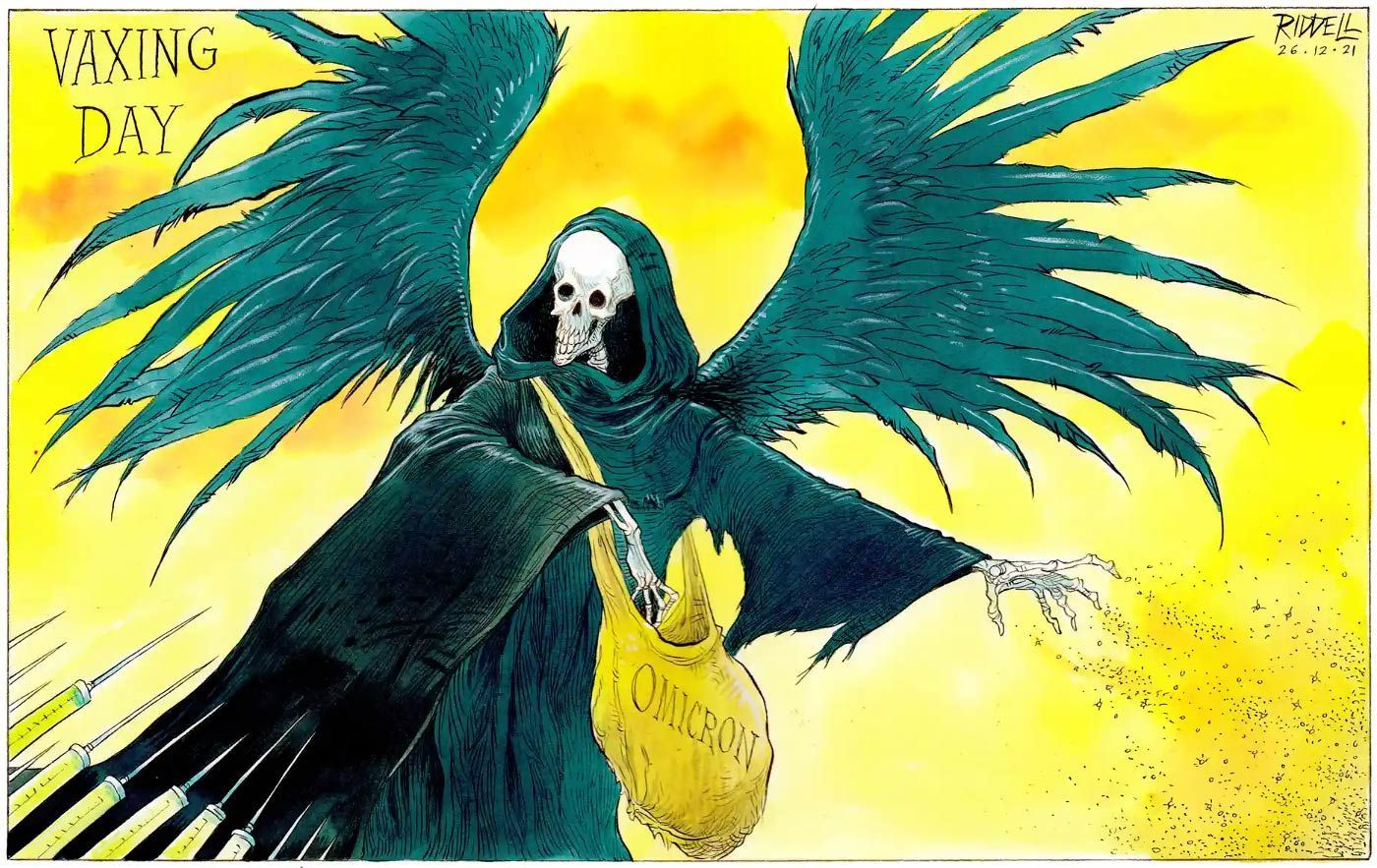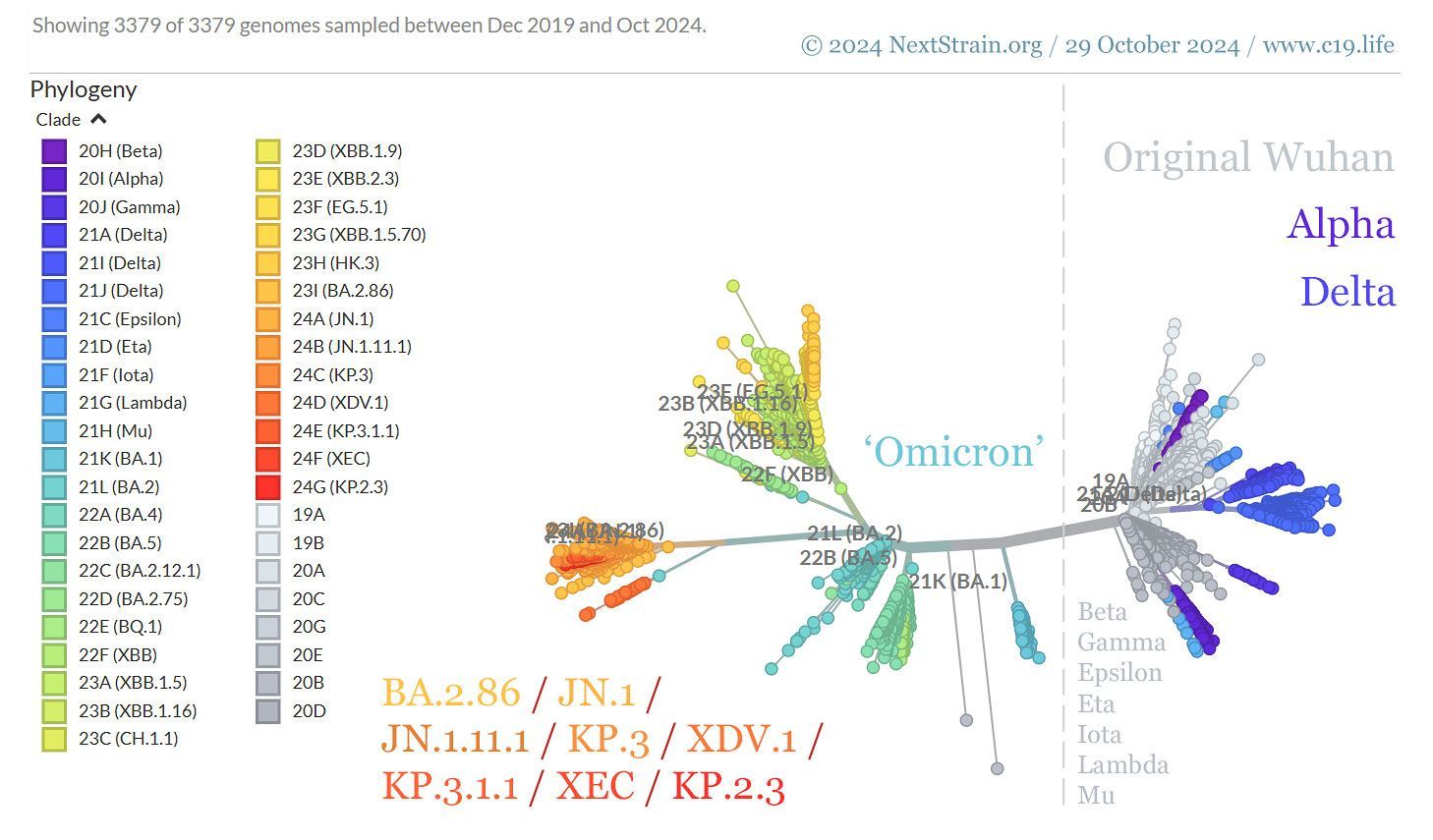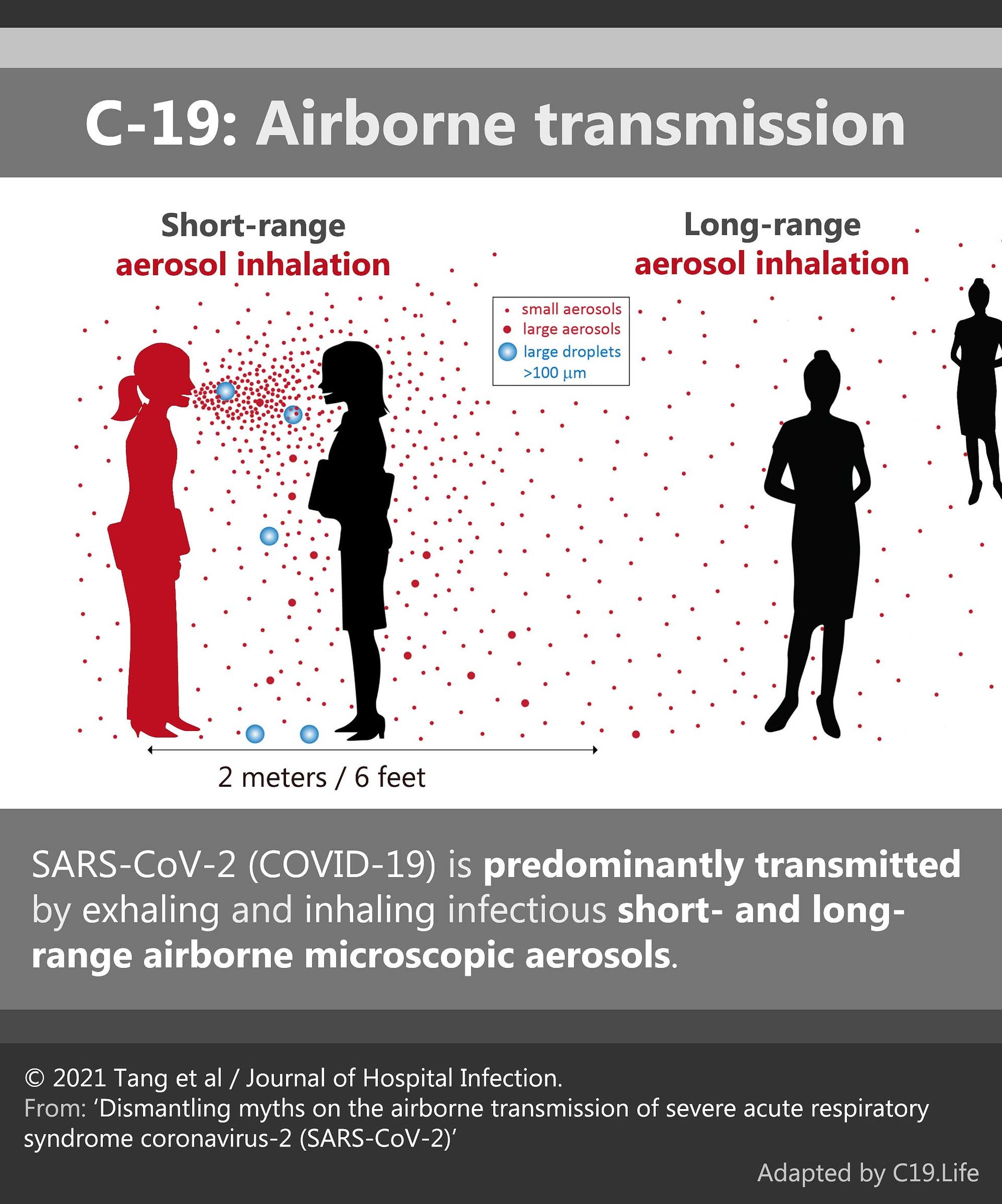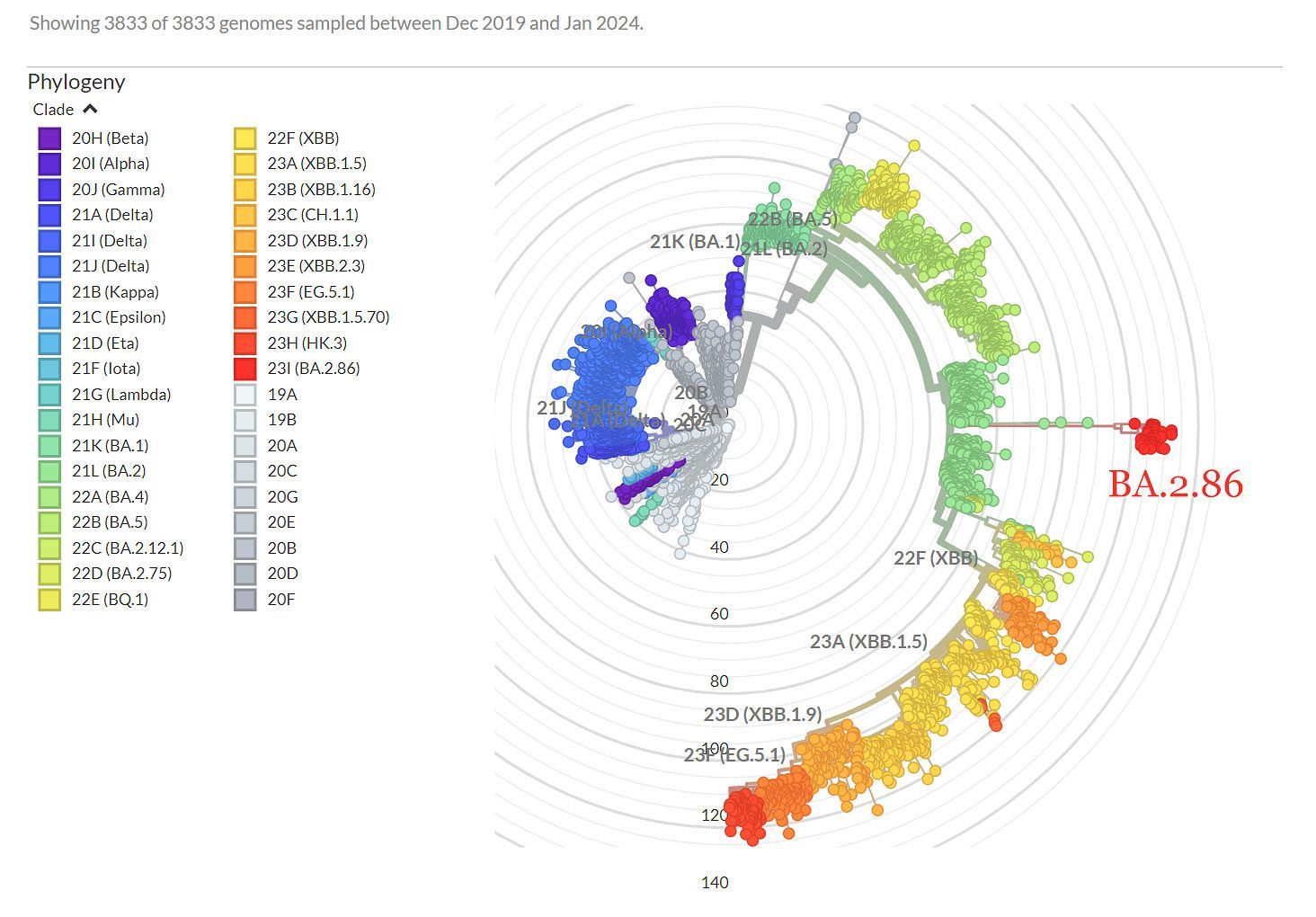➲ Home ➲ C-19 Archives
📖 Persistent symptoms and clinical findings in adults with Post-Acute Sequelae of COVID-19 / Post-COVID-19 Syndrome (PCS) in the second year after acute infection
‘The predominant symptoms, often clustering together, remain fatigue, cognitive disturbance and chest symptoms, including breathlessness, with sleep disorder and anxiety as additional complaints.
Many patients with persistent PCS [PASC/‘Long Covid’] show impaired executive functioning, reduced cognitive processing speed and reduced physical exercise capacity.’
📖 (23 Jan 2025 ~ PLOS Medicine) ‘Persistent symptoms and clinical findings in adults with post-acute sequelae of COVID-19/post-COVID-19 syndrome in the second year after acute infection: A population-based, nested case-control study’.
© 2025 R.S. Peter et al / PLOS Medicine.
‘The
development of
new symptoms related to PCS among participants initially recovered was associated with an
intercurrent secondary SARS-CoV-2 infection
[COVID-19 reinfection].’
📖 (23 Jan 2025 ~ PLOS Medicine) Figure: ‘Change in case-control status of study participants between initial questionnaire survey (Phase 1) and clinical examination (Phase 2).’
© 2025 R.S. Peter / PLOS Medicine.
❦ Study ~ ‘Persistent symptoms and clinical findings in adults with post-acute sequelae of COVID-19/post-COVID-19 syndrome in the second year after acute infection: A population-based, nested case-control study’
By R.S. Peter et al / PLOS Medicine (23 Jan 2025) [Abridged]
❦ ‘We found persistence of symptoms and impairments in two-thirds of patients with PCS [Post-COVID-19 Syndrome, or ‘Long Covid’] after more than 1 year following acute SARS-CoV-2 infection.
Individuals with persistent PCS [‘Long Covid’] demonstrated objective signs of cognitive deficits, and reduced exercise capacity.
Laboratory tests (including inflammatory and coagulation markers), or resting echocardiographic results, were unable to discriminate cases from controls.
These observations appear important since, unlike in many other studies, we included only adults of working age, and most study participants did not have medical treatment and were not hospitalised for their acute SARS-CoV-2 infection.
Interestingly, risk factors for non-improvement of case status in the present study included lower educational status.
‘The development of new symptoms related to PCS among participants initially recovered was associated with an intercurrent secondary SARS-CoV-2 infection [reinfection with SARS-CoV-2].’
Patients with persistent PCS were less frequently never smokers (61.2% versus 75.7%), [and] more often obese (30.2% versus 12.4%).
An important finding was that post-acute vaccination against SARS-CoV-2 did not appear to be associated with PCS improvement.
Fatigue and cognitive disturbance were the most prevalent health problems (more than 60% for each cluster) among individuals with persistent PCS.
Of note were the large overlap between self-reported fatigue, cognition problems and chest symptoms, and the strong correlation of various symptom ratings with health-related quality of life scores.
‘Extreme fatigue affected approximately one-tenth of the patients with persistent PCS [Post-COVID-19 Syndrome, or ‘Long Covid’], while PEM [Post-Exertional Malaise] lasting more than 14 hours was reported by 36%.
Cognitive disturbance was the second most frequent symptom cluster, with concentration problems being slightly more often reported than memory problems.’
A similar observation independent of the time after acute infection has also been made in a large online survey among subjects with complaints for at least 3 months after infection [✪].
[✪] Brus et al. The prolonged impact of COVID-19 on symptoms, health-related quality of life, fatigue and mental well-being: a cross-sectional study. Front Epidemiol. 22 Jun 2023.
In a large claims data network analysis of neurologic and psychiatric sequelae, Taquet and colleagues [✪] found that risks of cognitive deficits, dementia, psychotic disorders and epilepsy/seizures remained increased over a 2-year follow-up period after SARS-CoV-2 infection, which was unlike the risks of (other) common psychiatric disorders that rapidly returned to baseline.
[✪] Taquet et al. Neurological and psychiatric risk trajectories after SARS-CoV-2 infection: an analysis of 2-year retrospective cohort studies including 1 284 437 patients. Lancet Psychiatry. 17 Aug 2022.
Other studies also reported persisting or increasing cognition or concentration problems with generally decreasing rates of other symptoms and physical health over time [✪].
[✪] Cheetham et al. The effects of COVID-19 on cognitive performance in a community-based cohort: a COVID symptom study biobank prospective cohort study. EClinicalMedicine. 21 Jul 2023.
[✪] Latifi A, Flegr J. Is recovery just the beginning? Persistent symptoms and health and performance deterioration in post-COVID-19, non-hospitalized university students – a cross-sectional study. Biol Methods Protoc. 6 Dec 2023.
A memory questionnaire study found worse memory problems up to 3 years after acute infection (when compared to uninfected controls) [✪], and a recent elegant study showed reaction time slowing with increasing time after acute SARS-CoV-2 infection [✪✪].
[✪] Ellingjord-Dale et al. Prospective memory assessment before and after Covid-19. N Engl J Med. 28 Feb 2024.
[✪✪]
Zhao
et al.
Long COVID is associated with severe cognitive slowing: a multicentre cross-sectional study.
EClinicalMedicine. 25 Jan 2024.
Taken together, these findings and the results of our study indicate that cognition problems might, in fact, tend more to chronicity than other health problems of PCS patients.
Sleep disorder, in particular
insomnia, was another
frequent complaint among cases. Pooled data of previous studies on more than 15,000 participants revealed a prevalence of
40%–50% for
sleep disorder among individuals with PCS, which is comparable to our data.
Neurocognitive testing showed significant group differences, indicating cognition deficits concerning attention and executive functioning, with problems in divided attention and lower processing speed in patients with persistent PCS, and this finding appeared to be independent of pre-existing illnesses.
Impaired executive functioning and reduced processing speed, as observed here in persistent PCS, is in agreement with a report of similar deficits in a large registry cohort [✪] of COVID-19 patients, with pronounced cognitive slowing in 270 patients from two PCS cohorts [✪✪], and with attention and executive function deficits in a comprehensive cognitive assessment of patients with PCS after mostly mild initial disease [✪✪✪].
[✪] Becker et al. Assessment of cognitive function in patients after COVID-19 infection. JAMA Netw Open. 22 Oct 2021.
[✪✪] Zhao et al. Long COVID is associated with severe cognitive slowing: a multicentre cross-sectional study. EClinicalMedicine. 25 Jan 2024.
[✪✪✪] Delgado-Alonso et al. Cognitive dysfunction associated with COVID-19: a comprehensive neuropsychological study. J Psychiatr Res. 26 Mar 2022.
An impaired physical exercise capacity with reduced handgrip strength (or 6-min walk test) and reduced VO₂ max* appear to be hallmark signs of PCS.
* VO₂ max: Maximum rate of oxygen consumption as measured during incremental exercise, most typically on a motorised treadmill.
One of the strengths of the present study is the nested, population-based approach in defined geographic regions with a large number of individuals with PCR-confirmed earlier infection, regardless of the need for medical treatment.
We focussed on adults in the working age-group.
We avoided an over-representation of hospitalised elderly patients who are likely to show more SARS-CoV-2-non-specific adverse health sequelae due to more severe acute infection, comorbidities and ageing.
As a conclusion, we report that two-thirds of patients with PCS [Post-COVID-19 Syndrome / PASC / ‘Long Covid’] 6–12 months after acute SARS-CoV-2 infection continue to report persistent symptoms interfering with daily living and associated with reduced quality of life and/or work ability.
The symptoms appear to change slightly but the predominant symptoms, often clustering together, remain fatigue, cognitive disturbance and chest symptoms, including breathlessness, with sleep disorder and anxiety as additional complaints in a substantial proportion of cases.
In a thorough medical examination, many patients with persistent PCS show findings that significantly differ from controls and are in part abnormal/out of reference; these include impaired executive functioning, reduced cognitive processing speed and reduced physical exercise capacity only in part explained by deconditioning and typically unrelated to central cardiac or pulmonary limitations.’
❂
📖 (23 Jan 2025 ~ PLOS Medicine) Persistent symptoms and clinical findings in adults with post-acute sequelae of COVID-19/post-COVID-19 syndrome in the second year after acute infection: A population-based, nested case-control study ➤
© 2025 R.S. Peter / PLOS Medicine.
❂
More... Post-Exertional Malaise (PEM)
More... PCS (PASC / ‘Long Covid’)
C-19: Archives
Useful search tags:
air filtration / babies & children / body / brain / C19.Life / cancer / comment / dementia / economy / elders / excess deaths / exercise / flu / heart / history / hospitals / immunity / influenza / law / Lisa Iannattone / long covid / lungs / mitochondria / muscles / musculoskeletal / NHS / Noor Bari / nosocomial / PEM / parkinson’s / propaganda / reinfections / reproduction and pregnancy / resources / respirators / respiratory / risk / SARS(-CoV-1) / schools / solutions / transmission / universities / UVC / vaccines / variants / WHO / young adults / zoonosis
